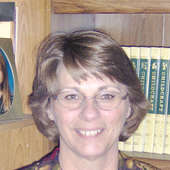Born to die
When I was in fifth grade, my school, Valley View Elementary, conducted a talent show.
With the help of my classmate's mother, Mrs. Verna McManus, I diligently practiced "Born Free," even though Mrs. McManus diplomatically suggested several other songs more in "tune," shall we say, with my limited range.
With the foolish tenacity of a fifth-grader, though, I stuck true to the chosen song.
I don't know if it was divine intervention or the teacher's wisdom, but somehow the microphone stopped working at the penultimate moment so my classmates and I only had to suffer through a very quiet, exceptionally breathy rendition of the then popular song.
The song is from the movie of the same name, released in 1966, which presented the story of a game warden and his wife who raise Elsa, a lion cub, in captivity. When Elsa matures, they teach her how to survive in the wilderness.
Elsa, though raised in captivity, was indeed born free in a way natural man can never be.
Gifted with the power of reason and recipients of the paradoxical blessing and curse that defines the knowledge of good and evil, man is born to die. A fact we become aware of all too soon in life. So man, whether to the manor born or born in slavery, is chained to the law of sin and death, the law enacted when Adam and Eve tasted the fruit of tree of the knowledge of good and evil. (Genesis 3:5)
Banishment was their immediate punishment and theologians surmise that the process of dying thus began. Their banishment from the garden assured their deaths as in banishing them and setting a guard before the garden gate, God prevented them from accessing the tree of eternal life. (Genesis 3:22)
According to Scripture, men initially lived hundreds of years and it may well be that when the time of one's passing arrived, he was somewhat relieved to relinquish his burdens. Perhaps death after 500, 600 or 700 years wasn't the dire enemy it seems to be today after a mere 60, 80 or even 100 years. As one elderly friend informed me when her husband of 75 years died at 95, "At its longest, life is short."
Born to die. That, unfortunately, was the nature of our fallen world.
Until one night some 2,000 years ago in the City of David.
When God sent his Spirit to overshadow the virgin betrothed to Joseph, he created in her womb the last man that would receive an unalterable, unpardonable, irrevocable death sentence, though his life had scarcely begun.
From that humble birth in Bethlehem, through the midnight flight to Egypt, and through all of his growing up years, Jesus walked in the shadow of his cross. I find it astounding that he was able to accomplish anything at all under the circumstances, let alone withstand the enemy's focused temptations, put up with ridicule, non-belief, rejection and betrayal -- even from his closest friends --heal the lame, restore sight to the blind and teach the word of God with power and authority.
In the song "The Perfect Tree" written and sung by Ray Boltz, is the unarguable message: "Every step this baby took brought him closer to the cross." Every step. Every moment in the carpenter's shop. Every moment of play with his younger brothers and sisters. Every breath he took in he exhaled into that final, submissive prayer, "Father, into your hands I commit my spirit." (Luke 23:46)
Born to die. That was the sentence handed down in the garden and in every birth since then. We forestall death with science, medicine and yes, even prayer, nevertheless, it is appointed to "every man once to die." (Hebrews 9:27)
But death is no longer our final destiny. The cross of Jesus has become, in a paradox of faith, that same tree of eternal life left untasted so long ago in the garden. For it is through his death and resurrection that we find life eternal; and the destiny of man, once born only to die, is now to instead find life. "I have come that they may have life, and have it to the full." (John 10:10)
This, then, is what we celebrate, not only on Dec. 25, a date admittedly co-opted from the pagans, but every day, with every breath. For this birth gives life, both abundant and eternal. Born in him, we are truly born free. Free to love. Free to forgive. Free from the tyranny of the oft-heard cry, "What about me?!" Free forever from the chains of sin and death. So, to each one of you I say Merry Christmas.
And, while you're enjoying the pleasure of family, the warm and colorful lights of the Christmas tree, as you give thanks for a table laden with abundant food and for this time of fellowship, take a moment to visit the babe wrapped now in the swaddling clothes that foreshadowed the grave clothes he left one behind, that you too may one day be born free.
"In him was life, and that life was the light of men." John 1:4 (NIV)
Things you won't see in heaven: Chains
Audio from KNGN 1360 AM:

